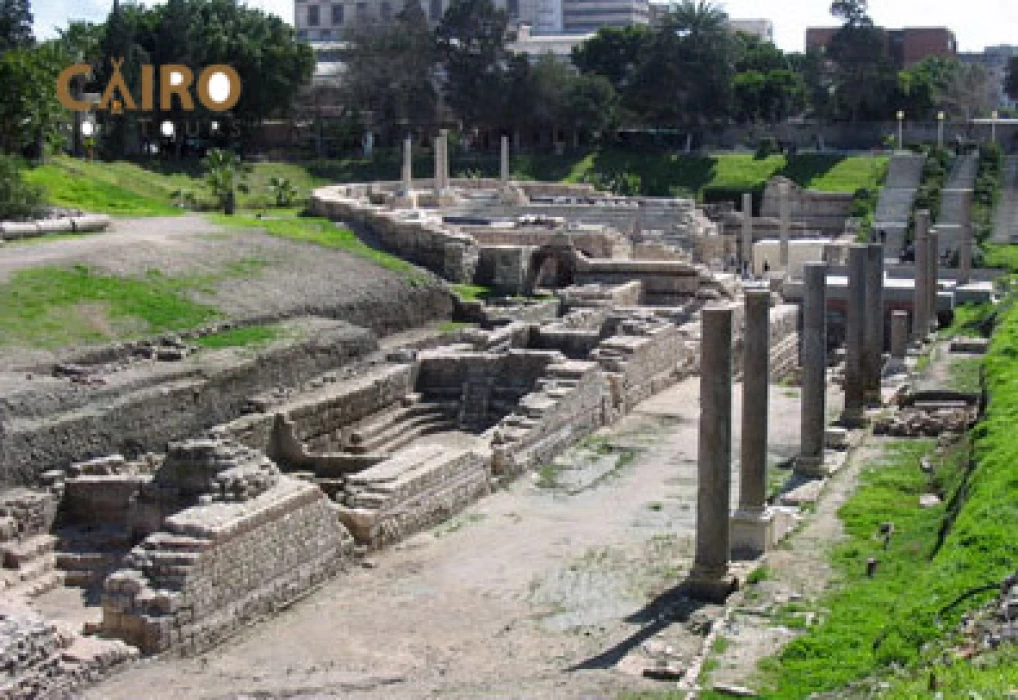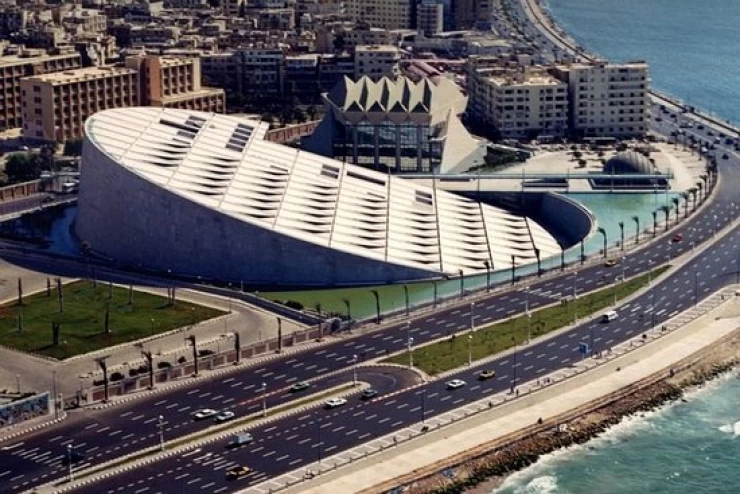
The Roman Amphitheatre.
Roman theatre
The meaning of the word Roman theatre is a round building that was related to sports and combat games at the time, the most famous of which were fights between slaves, and whoever killed the other was the one who won, and many other games were held, and there were also plays that expressed the Roman art at that time, and the most famous Roman theatres are those built by Emperor Vespasianus and Domitianus at the Escoblei Hill in Rome.
The Roman Theatre in Alexandria.
One of Egypt's greatest monuments, the Roman Theatre in Alexandria, reminds one of a time long gone when Roman culture interfingered with Egyptian culture. Also located in the Kom El-Dekka district in downtown Alexandria, the Roman Theatre is considered one of the most remarkable Roman theatres ever discovered in Egypt.
The history of the theatre's discovery
The Roman theater in Alexandria was discovered in 1960 during excavations by the Polish archaeological mission while in search of the tomb of Alexander the Great; however, instead of the tomb, they found this marvelous theater.
Architectural description of the theatre
The theatre consists of
Marble stands in the shape of a semicircle, divided into 13 rows of white marble.
A central auditorium that was used for performances, debates, and other events.
A back area that was used as corridors and service facilities.
It is believed that the theatre was able to accommodate more than 700 spectators in ancient eras.
Uses of theatre in ancient history
The theatre was not only for theatrical performances; it was also used for cultural meetings, seminars, concerts, and other things like political activities and public lectures.
The importance of the Roman Theatre today
Presently, the key focus point of tourism in Alexandria is the Roman Theater, and so are the visitors or researchers in archaeology and history. It discusses the influence of the Romans in Egypt and proves cultural interaction through different civilizations in the history of Alexandria.
A little trip today turns out to be enjoyed through the amphitheater in Germany, where visitors can watch one of the shows enacted in what has turned out to be a very important tourist destination in Alexandria—the Roman Theater. Visitors are going to be newcomers and expect to share the excitement and hype that researchers and archaeology experts from different parts of the country have felt toward highly regarded tourist places. Besides being a site of great archaeological significance, it could well be complementarily used as evidence for Roman influence in Egypt and pen evidence for culture interaction among the civilizations that passed through Alexandria.















